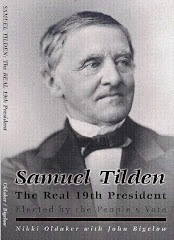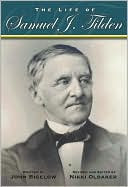I looked for the Kyra with Honore' video all day yesterday & this morning --soon as CNN posts it I will add the embed link -- Here is the link to the CNN website -where I finally found the transcript -- http://edition.cnn.com/TRANSCRIPTS/1006/21/cnr.02.html
PHILLIPS: But, you know, I do have a guest with me that's no stranger to breaking the rules, General Russell Honore talking about other small towns that are taking it upon themselves now to protect themselves. I mean, they have to? They have no other choice, right? Tell me in this situation why you are not against what folks in Okaloosa, Florida are doing in other parts of the region?
GEN. RUSSELL HONORE (RET.), CNN CONTRIBUTOR: From my experience, the first thing you go to do in a disaster is figure out what rules you're going to break. Because the rules are based for normal peacetime, and they're based with all of the government agencies telling you what you can and can't do. The problem here is the oil. And we got to stop the oil from attacking the gulf shore.
As they did in Florida, here in a Mobile Bait, a little place called Magnolia Springs, Magnolia River area, and the (INAUDIBLE) river, the community, the volunteer fire department put together a plan where they would use barges and a curtain. I have been reading this with much interest. I'm looking forward to going to see it in the next couple days.
And it took their own initiative and they forced this thing through the state who wouldn't initially listen to them. They got the approval of everybody, and BP gave them a $200,000 grant to put that barge in so it can protect this fragile estuary. That's people (INAUDIBLE). That's the American spirit to defend your homeland, to defend what your way of life. And that's what they're doing, just like we got it from the revolutionary war on.
PHILLIPS: OK. And I hear you. I see what you're saying get it. I would want to take matters into my own hands too, and do whatever I needed to do to save my people, my region. But when you look logistically at what's taking place on a higher level, OK, with the government and with BP. If all these areas start taking the responsibility upon themselves to start doing something, does that affect the overall mission with what BP and the government is trying to do?
HONORE: Absolutely not. You know, one of the biggest responders we had after Katrina were volunteers. Volunteers came in and evacuated more people up front than anybody else. And that's the way it is in every disaster. In this disaster, the people that lived there and they know the coast line better. The challenge is you got about 32,000 square miles here to deal with. So you take an area like this. The local fishermen know this area better.
The problem we got to have is how do we get the Coast Guard, BP and get the assets out to find the oil and suck that oil before it gets to the coast line. Right now, the government's got about a three-mile - over here in Louisiana, about a three-mile off the coast is their area of responsibility but three miles out to where the oil rig is and then you got all these area, 32,000 square miles, Kyra.
We got to get more assets in there to find the oil and skim it before it gets inside the state boundary and then when it gets there, we got to empower the governors to be able to resource these mayors. They worry about their community and the local people so they can protect it.
PHILLIPS: We got the on-going effort that the government and BP has put together. You got all these local communities taking things upon themselves, and now you're saying when you talk about bringing in more assets, are you saying we need more from DOD? We need NORTHCOM to pull the trigger and (INAUDIBLE).
Can you be specific? Can you give me an example?
HONORE: What we need is NORTHCOM working for Admiral Allen to handle the assets, P-3s, (INAUDIBLE) search vessels as well as small Army boats, Marine landing crafts to get out here and give the C-2 here so Admiral Allen can see the oil, find the oil and skim it before it gets to the shoreline.
We need to get only DOD, has that command and control to operate over this expanse of water, to be able to track that oil and find it so you can immediately pull a BP skimmer in to deal with it.
On the coast line, we got the organization to dot his already. We got a FEMA region four, setting up here in Atlanta, moving to the coast, put them in every county. Because this is going to be (INAUDIBLE) event, Kyra. Hurricane season is coming.
PHILLIPS: So, final question, has the request - because we know that NORTHCOM cannot be activated unless the local leaders say we need help, we need military assets. Have those request been made? Is something in the process -
HONORE: It hasn't publicly been published yet but I assume the conversation is happening. On the assets from NORTHCOM, will include Army north over here in San Antonio of the First Air Force and naval command (INAUDIBLE) have the capability to reinforce it. Jacksonville, P-3s, submarine hunters, east and west coast of Florida.
PHILLIPS: Just want to point out P-3s are the aircraft that do a great job at reconnaissance. You're hoping they can spot plumes, et cetera?
HONORE: They're the best in the world. They know how to hunt for submarines.
PHILLIPS: And we should point out. That's how you were dispatched here to the New Orleans area during Katrina because the calls were finally made by the local authorities to the military. We need help. You were under north com at that time and that's when we saw National Guard coming through with those Humvees and you know, layers of water.
HONORE: The way out of that is for the governors to request it, call it a national disaster, invoke the Stafford Act, FEMA come in, and each one of these governors send their requests to FEMA. Right now, their requests are going to Coast Guard and then to BP. Then, BP decides what they're going to pay for. We will not fight and win this war, having to go through BP. Thos approvals need to go the federal government and be approved and you need to have a sector commander for each state that has the command and total authority to say yes.
PHILLIPS: We will follow it and see if, indeed, that yes is implemented. Good to see you. Always a pleasure.
Subscribe to:
Post Comments (Atom)



No comments:
Post a Comment
Post your comments: